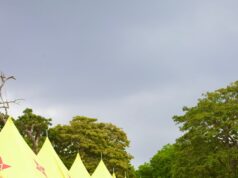The Forestry Commission says it has begun the process to procure firearms for its frontline staff following clearance received from the security services to proceed.
The move, the commission maintains, is to equip its staff to make them more proficient at clamping down on the activities of illegal loggers operating in the country’s reserved forests and wildlife sectors.
The Deputy Chief Executive Officer of the Forestry Commission, Mr John Allotey, said: “The purchase of semi-automatic weapons will help staff counter-attacks from poachers and loggers who venture into the country’s forest reserves at night to cut down trees and kill animals illegally.”
He said with a number of forest guards coming under attack, the commission believed arming its officers who patrolled the reserves would deter people who engaged in illegal activities in the forest reserves.
Training
Mr Allotey was speaking to journalists at a training programme for custom authorities on the implementation of the Convention on International Trade in Endangered Species of Wild Fauna and Flora (CITES) in Accra.
He said the commission had signed a memorandum of understanding with the Ghana Armed Forces to get staff of the commission who would be armed to be well trained and guided in weapons handling.
“We have a memorandum of understanding with the Ghana Armed Forces to get the best of training for our guards so that we don’t get to a point where the weapons will be used for the wrong purpose or for them to get into wrong hands.
“We will continue to train our staff on standard operating practices in handling the weapons and ammunition, as well as in ways of maintaining them properly,” he said.
Visibility
The Deputy CEO of the Forestry Commission said the weapons would give the commission some form of visibility, adding that while forest guards might not be the first to attack, “it will give our men some protection and make the poachers aware that we can match them and even with superior firepower’.
“In the past, it was like sending an army to war without ammunition. Our guards had their hands tied behind their backs. The people they contend with bear sophisticated weapons and they know that we are not properly equipped, and that is why they easily attack our guards,” he said.
CITES training
The one-week training programme was meant to strengthen the capacity of custom authorities to effectively implement and enforce CITES.
It also focused on improving the skills of law enforcement officers from across the country on ways of tackling wildlife and forest crimes through the use of a broad range of innovative and specialised investigation techniques.
It was organised by the United States Administration for Ocean and Atmospheric Affairs, the West Africa Biodiversity and Climate Change Programme of the United States Agency for International Development (USAID) and Born Free, in collaboration with the Forestry Commission.
In attendance were 25 participants drawn from Ghana, Guinea Bissau and Cape Verde.
Worrying statistics
It is estimated that about 6.6 million hectares of Ghana’s 8.2 million hectare forest reserve has been depleted over the years through indiscriminate human activities.
Currently, the remaining 1.6 million hectares of the forest cover are under threat from illegal lumbering, activities of estate developers and other human exploits.
On the wildlife front, poachers have been busy in the country’s forest reserves hunting engendered species, including elephants.
A huge appetite for bushmeat also makes wildlife vulnerable to hunters even during the closed season, which is between August and December each year.
Mr Allotey noted that recent studies had demonstrated that West Africa was increasingly becoming a transit point for wildlife products coming in from central and East Africa.
By: graphic.com.gh























